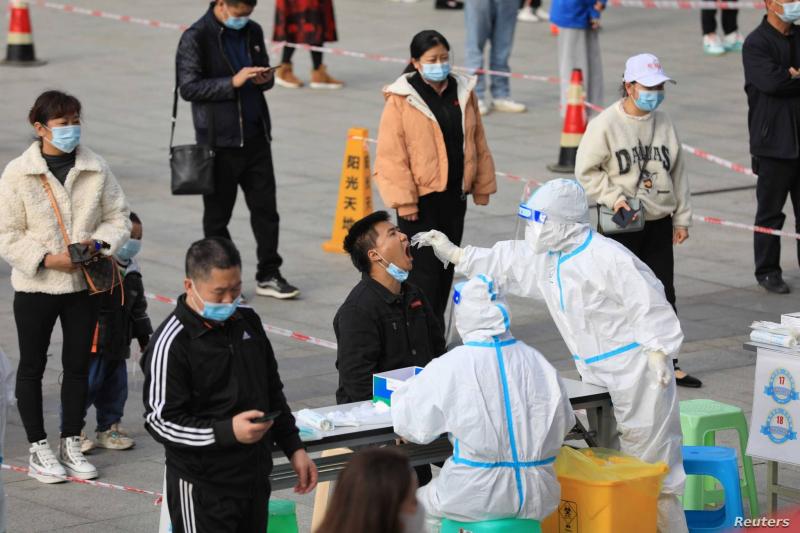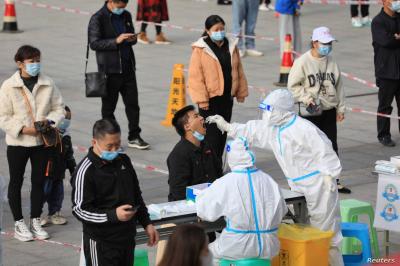Experts warn that China's strict approach to the COVID-19 pandemic is unsustainable and may increasingly isolate Beijing diplomatically and economically. The low number of COVID-19 infections has become a source of national pride for many Chinese citizens, with strict government restrictions enjoying popular support, despite initial dissatisfaction at the outbreak in Wuhan in December 2019, according to the New York Times.
Chinese President Xi Jinping repeatedly emphasizes that the country's success in controlling the virus is evidence of its superiority. Lynette Ong, a political science professor at the University of Toronto, stated, "The regime believes it needs to maintain a zero-COVID policy to preserve its legitimacy. But this comes at a great cost."
Since mid-October, China has locked down a city of 4 million people, along with several smaller cities and parts of the capital, Beijing, to contain a new outbreak that has infected more than 240 people across at least 11 provinces and regions. The American newspaper reports that despite the new outbreak being small compared to others globally, the infections are significant for China.
The report noted that this policy has increasingly made China a remote outlier as the rest of the world begins to reopen, including New Zealand and Australia, which previously maintained a zero-COVID policy. China is now the only country still focused on completely eradicating the virus, rather than trying to coexist with it as many other countries have done.
China rejected a shift in strategy when prominent infectious disease expert and Communist Party member Zhang Wenhong suggested that the country should learn to coexist with the virus, facing fierce online backlash and being labeled a "servant of foreigners." A former Chinese health minister described this mentality as reckless, while Professor Ong indicated that the government fears any challenge to its narrative of fully conquering the pandemic.
She added, "The spread of the disease has become so common that it is not even an event anymore. But the Chinese authorities want to control any small potential source of instability." Urban studies researcher at the City University of Hong Kong, Zhang Jun, noted other reasons for China's reluctance to abandon its strict virus policy, indicating that medical resources are heavily concentrated in major cities and significant outbreaks could overwhelm remote areas.
Additionally, while China has achieved a full vaccination rate of 75% of its population, questions have emerged regarding the efficacy of local vaccines. Experts agree that the political costs of a zero-COVID policy are at the expense of slowing economic growth, with domestic travel declining over weekends.
State media reported that nearly 10,000 tourists are stranded in "Ejin Banner," an Inner Mongolia region, after cases led to a full lockdown. The local tourism association promised free entry to three popular tourist attractions, which can be used within the next three years as compensation for the closures of tourism facilities.
The country is also suffering diplomatically, as leader Xi has not left China or welcomed foreign visitors since early 2020, according to the newspaper, even as other world leaders prepare to gather first in Rome for the G20 summit and later in Glasgow for the United Nations Climate Change Conference COP26.




